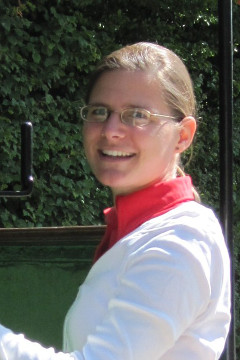Julia has been appointed assistant professor of early North American history at Villanova University.
Julia Mansfield

Ph.D. CandidateHistory DepartmentStanford University
The Disease of Commerce: Yellow Fever in the Atlantic World, 1793-1805
The United States of America was born in a period of global warfare, which historians call the Age of Revolutions. In this period, internecine revolts and inter-national rivalries re-shaped all of the empires of Europe. A pandemic of yellow fever coincided with the political turmoil. Yellow fever is a mosquito-borne, hemorrhagic fever that caused huge fatalities and general distress in Atlantic ports between 1793 and 1823. The state of war allowed yellow fever to overrun the West Indies, the United States, and Spain. Historians of the early United States associate yellow fever with a single city and a single year: Philadelphia, 1793. In a local context, yellow fever is a lens for social conflict, politics, and public health. There is a bigger story to tell. My research brings into focus the full pandemic by aligning America’s epidemics with geopolitics in the Age of Revolutions. This approach reveals the impact of yellow fever in a global system of trade and the weight that Americans gave to the fever in international politics.
Updates
Congratulations to Julia Mansfield, who will be the Cassius M. Clay Fellow in the History Department, Yale University for 2017-2019.
Mansfield has been awarded a Dissertation Completion Fellowship for 2014-15 from the Society for Historians of American Foreign Relations. She will be spending this fellowship at the Center.
Julia was recently awarded the 58th annual Allan Nevins Prize by the Society of American Historians for her dissertation, The Disease of Commerce: Yellow Fever in the Atlantic World, 1793-1805. The prize recognizes the best written dissertation on an American topic.